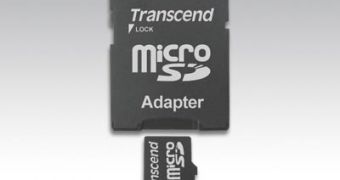Flash based memory chips are becoming more and more popular as their price drops and their storage capacity and relative performance climbs. Nowadays, flash memories can be found in many computer hardware parts (flash memory sticks, solid state drives - SSDs) and in cell phones and just any kind of mobile gadget that needs some sort of storage capacity. As NAND flash memory chips are still pretty expensive and their storage capacity does not equal the traditional hard disk drive's, a new piece of hardware appeared trying to get the best from the both worlds: hybrid hard drives.
According to the site WindowsForDevices at the MemCon conference that addresses trends and news in the computer memory industry, a recurring theme was the NAND memory and "especially its applicability to SSDs (solid-state drives) and HHDs (hybrid hard drives)". The MemCon conference was attended by most important hardware manufacturers that sent their representatives, so the conference featured speakers from ARM, Freescale, IBM, Intel, Microsoft, Samsung, Sandisk and, Texas Instruments. According to the said site, "Lane Mason, memory market analyst for Denali, said more gigabytes of NAND-based storage will ship in 2007 than the sum total of all DRAM memory shipped since 1970. He added that NAND applications up to 2010 will primarily be in SSD/HHD, AV media storage, and advanced phones".
Software producers were represented by Microsoft and its representative, Vlad Sadovsky said that NAND flash memory is a "better disk than disk", but that the advantages of traditional hard disk drives must not be forgotten, as each SSD and HDD has its own distinct gains and losses. In Microsoft's opinion, the best employment for solid state drives would be as storage devices in laptops because they have no moving parts, are faster than traditional hard disk drives and need less power. Vlad Sadovsky also noted that the disk drive's malfunction is the "second largest generator of calls to technicians".
The NAND memory producer Freescale expressed its opinion through John Vaglica, member of technical staff, that flash memory chips are "critical for smart phones" because their storage requirements are doubling up with each new generation. As the processing power of the mobile devices grows, so does their need for faster and lower latency memories. Just like Microsoft, Intel sees NAND flash memory chips as a bridge between ever faster computer processors and the much slower traditional hard disk drives. Intel's senior applications engineer, Don Verner said that "CPU performance has improved by a favor of 30 since 1996, whereas disk has only improved about 30 percent", but that this situation may soon change as SSDs and hybrid hard drives become more affordable and more popular for both producers and consumers.
As the computer memory market - both for DRAM and NAND - is a very dynamic one, the next MemCon will be held in just a few months in Tokyo.

 14 DAY TRIAL //
14 DAY TRIAL //